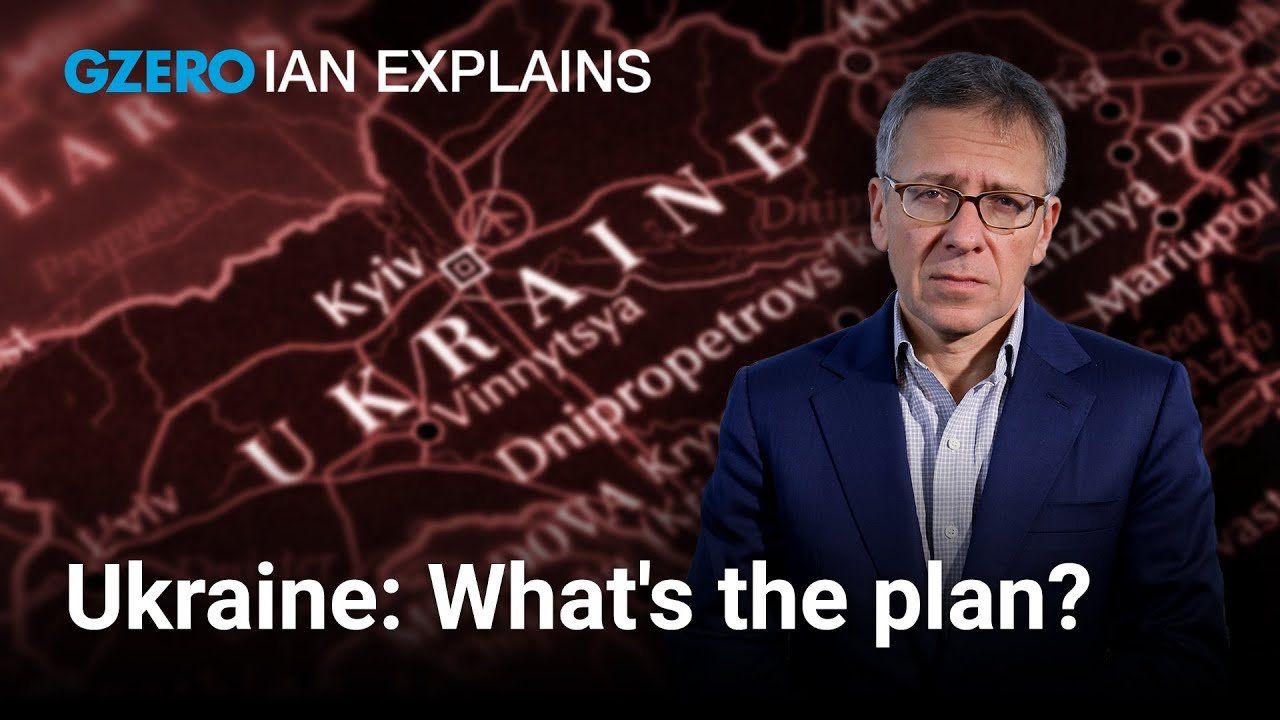Ian Explains
What's the plan for Ukraine after two years of war? Ian Bremmer explains

What's the plan for Ukraine after two years of war? Ian Bremmer explains | GZERO World

As Russia’s invasion of Ukraine enters its third year, what's the plan for both sides as casualties rise, Europe's support wavers and US funding for Ukraine hangs in the balance?
It’s been two years since Russia launched its full-scale invasion of Ukraine, which shows no signs of ending any time soon. On Ian Explains, Ian Bremmer looks at how Ukraine and Russia have fared so far and what comes next for Kyiv and Moscow. So far, the numbers tell a grim story. Both countries have lost around 70,000 troops each, with hundreds of thousands more injured, according to recent estimates. Meanwhile, Russia still occupies around a fifth of Ukrainian territory. So what’s the plan?
On the Ukrainian side, the strategy remains the same: survive. After a disappointing summer counteroffensive and recent shakeup of Ukrainian military leadership, Kyiv is hoping recent attacks inside Russia can put Moscow on its back foot. The Kremlin, for its part, is waiting out the clock, banking on war fatigue in Europe and political infighting in the US to stem the flow of military assistance to Ukraine. A prospect that seems all the more likely if Donald Trump wins the US election in November.
Ninety-two percent of Ukrainian citizens say that the only acceptable end to the war would be a complete Russian withdrawal from their country, including Crimea. As the conflict enters a third year, 44 million Ukrainians overwhelmingly want to defend the territory, but is that enough to win?
Conservative businessman Nasry Asfura has taken office as president of Honduras after winning a razor-thin election that his opponent still disputes.
For China, hitting its annual growth target is as much a political victory as an economic one. It is proof that Beijing can weather slowing global demand, a slumping housing sector, and mounting pressure from Washington.
FILE PHOTO: European Commissioner for Trade Maros Sefcovic and India's Trade Minister Piyush Goyal pose after signing an agreement, as European Commission President Ursula von der Leyen, Indian Prime Minister Narendra Modi and European Council President Antonio Costa stand behind them, at the Hyderabad House in New Delhi, India, January 27, 2026.
After nearly 20 years of negotiations, the European Union and India struck a trade deal that will slash or remove tariffs from nearly 97% of all EU exports to India, and grant preferential entry to the European market for 99% of Indian products.